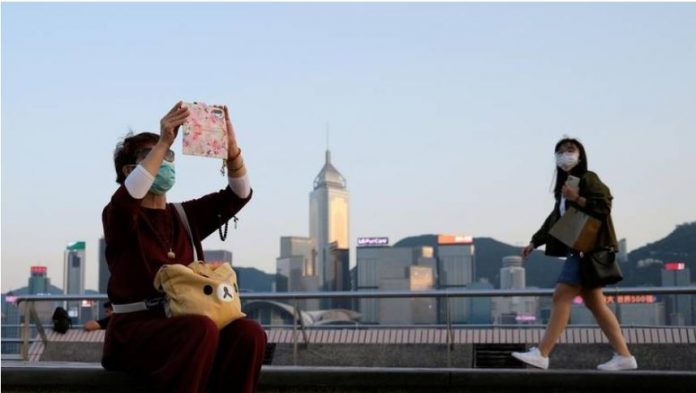The only way to control this pandemic is through personal behaviour, like staying 6 feet away from others.
After the lull and gloom of the pandemic, the world which was shut down for months, is slowly reopening businesses and economy in trepidation as countries still grapple to contain the outbreak.
The reopening of borders and businesses in some countries, however, does not suggest the end of the pandemic as relaxing Covid-19 restrictions have resulted in an increase in cases again.
The World Health Organization (WHO) said, “This (pandemic) is not even close to being over,” adding there is a long way to go before reaching herd immunity, meaning when 70 per cent to 90 per cent of a population becomes immune.
Until then, the only way to control this pandemic is through personal behaviour, like staying 6 feet away from others, including in social settings, and wearing a face mask.
Moreover, WHO said people should not let their guards down yet, and most importantly not follow popular misconceptions, reported CNN.
Beware! Popular Covid-19 misconceptions can be dangerous:
1. Reopening of economy means the pandemic is ending
The WHO said that a Covid-19 vaccine might take months before it can be made available to the public but until then there is no cure for the contagion. “It is critical that we all take the personal responsibility to slow the transmission and embrace the universal use of face coverings,” said Dr. Robert Redfield, director of the Centers for Disease Control and Prevention (CDC)
2. Young and healthy are not at risk
Although the death rate is lower among young adults infected with Covid-19, many are struggling with long-term effects from the disease.
New Jersey physician Dr. Jen Caudle said she has seen young patients suffer serious or long-term complications from Covid-19, including strokes, shortness of breath, fatigue, or the inability to smell and taste long after recovering from the virus.
3. Checking body temperature is enough
Temperature screenings do not catch asymptomatic or pre-symptomatic carriers of coronavirus, who don’t feel sick but are still contagious. An estimated 40 per cent of coronavirus transmissions happen without any symptoms, according to the CDC. Even those who do have symptoms might not have a fever and many older adults reportedly do not get a fever at all.
4. I don’t need to wear a mask
Jeremy Howard, a research scientist at the University of San Francisco said he noticed that in the past four months in Texas, the use of face masks dropped as the state started reopening. Now, Texas is grappling with a dangerous resurgence of Covid-19, forcing businesses to shut down once again.
If 95 per cent of Americans wore face masks in public, it could prevent 33,000 deaths by October 1, according to the University of Washington’s Institute for Health Metrics and Evaluation
5. Decrease in death rate means no danger
Also Read: Citigroup halts plan to bring staff back to work in 13 US states
Health experts said the current spike in new cases is related to reopening of businesses and many people shunning safety measures such as wearing masks or social distancing.
Yet while new cases soar, the daily numbers of Covid-19 deaths have generally decreased. Experts pointed out that decrease in death rate can be misleading as deaths from Covid-19 often lag weeks behind new infections and many of those newly infected are young people who are less likely to die from the virus. But they can still easily infect others by just talking or breathing.
6. Stop taking precautions if tested negative
If Covid-19 test result comes out negative does not mean you stop taking precautionary measures as you may have been infected since the test was taken. “Sometimes there are false negatives, which means you have the disease but the test doesn’t detect it,” according to Penn Medicine. “Because it is possible to get a negative result even when you have coronavirus, it is important to be careful even when you receive a negative result,” Penn Medicine added.
7. Herd immunity is the way out
Reaching herd immunity happens when a population becomes immune to an infectious disease either because people have been infected and recovered, or because they’ve been vaccinated.
But as this virus is so new, there is no evidence to show whether antibodies developed after recovering from the virus will provide any long-term immunity. Hence, it is imperative to take personal responsibility to help stop this deadly pandemic.
“We have powerful tools at our disposal — social distancing, wear a face cover in public, and be disciplined about the frequent hand washing,” said Dr. Redfield, director of the CDC.




